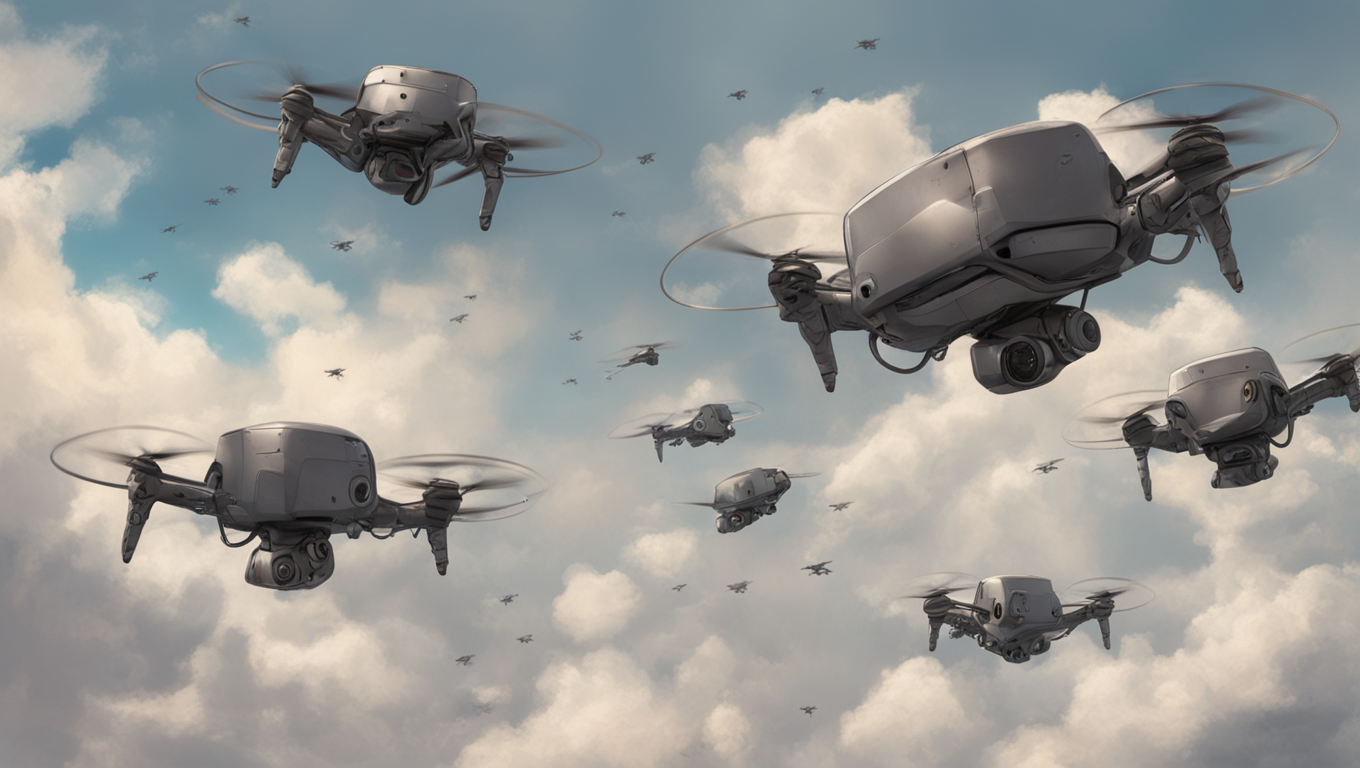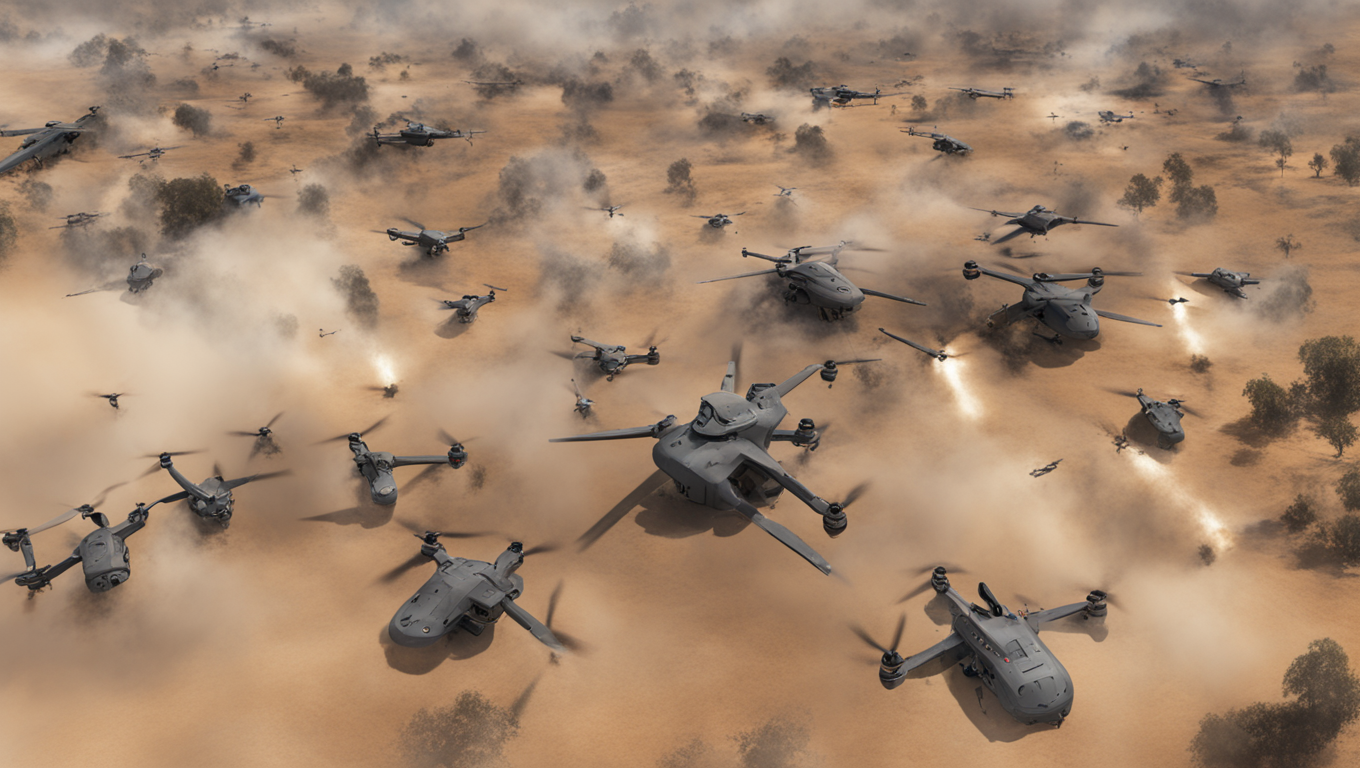Autonomous Weapons: The Future of Warfare Brings Concerns in the Gaza War
In a groundbreaking development, Israel’s army has deployed AI-enabled military technology for the first time in combat in Gaza. This move has triggered concerns about the use of autonomous weapons in modern warfare. With the ongoing conflict between Israel and Hamas, the deployment of autonomous technology raises questions about its effectiveness and the potential ethical implications it carries.
While the army has not explicitly disclosed the specific applications of the new technology, spokesman Daniel Hagari hinted that Israel’s forces were operating “above and underground simultaneously”. A senior defense official revealed that the technology is being used to destroy enemy drones and map out Hamas’s extensive tunnel network in Gaza. These applications demonstrate the potential of artificial intelligence in combat situations.
Amidst a dire period for Israel’s tech industry, which has been severely affected by the war in Gaza, the deployment of new defense technologies serves as a glimmer of hope. The sector accounted for 18 percent of Israel’s GDP in 2022, but the conflict has disrupted the industry, with an estimated eight percent of the workforce being called up for military service. Avi Hasson, chief executive of Startup Nation Central, an Israeli tech incubator, acknowledges the threats and opportunities presented by the war, stating, “Both on the battlefield and in the hospitals there are technologies that have been used in this war that have not been used in the past.”
However, the rising civilian death toll highlights the urgent need for greater oversight and regulation of the use of autonomous weapons. Mary Wareham, an arms expert at Human Rights Watch, emphasizes the importance of avoiding the unintended consequences of the new technologies. “Now we’re facing the worst possible situation of death and suffering that we’re seeing today – some of that is being brought about by the new tech,” she said.
The concerns about autonomous weapons have gained international attention. In December, more than 150 countries backed a UN resolution that highlighted the “serious challenges and concerns” surrounding the use of new military technologies, including artificial intelligence and autonomous weapons systems.
The conflict in Gaza, like many modern conflicts, has been influenced by the proliferation of unmanned aerial vehicles (UAVs), commonly known as drones. These inexpensive and easily accessible devices have made airborne attacks more feasible and affordable. Hamas utilized drones to drop explosives on October 7, prompting Israel to develop new technologies to counter and neutralize them.
One such technology is an AI-enabled optic sight developed by Israeli startup Smart Shooter. Attached to weapons like rifles and machine guns, this optic sight enhances soldiers' ability to intercept drones, making every soldier, even those with visual impairments, highly accurate. Another system involves using a friendly drone armed with a net to neutralize enemy drones, creating what the officials humorously refer to as “Angry Birds”.
Mapping Hamas’s extensive underground tunnel network, known as the “Gaza Metro”, is another crucial aspect of Israel’s military response. The army has turned to AI-powered drones, such as the one developed by Israeli startup Robotican, that can detect humans and operate underground, enclosed in a robotic case. This technology enables soldiers to navigate and explore the complex tunnel network, an essential task in countering Hamas’s guerrilla tactics.
The conflict in Gaza raises not only human rights concerns but also solidifies Israel’s position as a world-leading manufacturer of cutting-edge defense systems. The United States, Israel’s main international ally and provider of military aid, has even begun training its soldiers to use Smart Shooter’s optic sights to shoot down drones. As the use of autonomous technology continues to evolve, it is vital to strike a balance between ensuring national security and upholding ethical standards.
The deployment of AI-enabled military technology in the Gaza War marks a significant milestone in the evolution of warfare. As countries grapple with the ethical implications and regulation of autonomous weapons, it is crucial to continue the dialogue and debate surrounding this emerging technology. With lives at stake, finding the right balance between innovation and responsible use is imperative.





Use the share button below if you liked it.